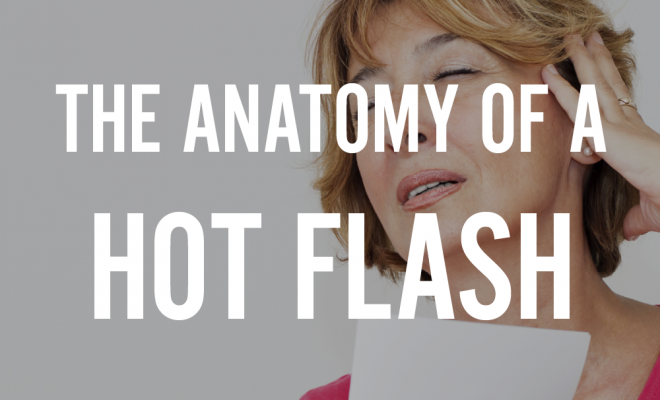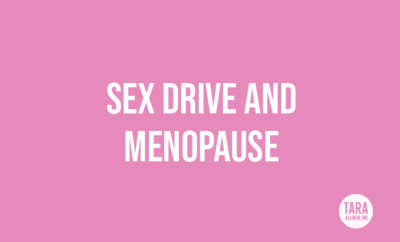
40s
The Anatomy of Hot Flashes
Hot flashes – what are they and what causes them?
While nobody actually knows the mechanism for a hot flash, we do know that there is an area in the brain called the hypothalamus that regulates body temperature. For whatever reason, during the transition through perimenopause and menopause, the hypothalamus sends signals that cause women to get hot. It starts out as an ascending flush in the chest, goes up the neck, into the face and turns your face red. There is no rhyme or reason as to which woman will have a mild flash and which woman will have a severe one. Genetics can play a part, though. There is a relationship between when our mothers and sisters transition and the severity of their symptoms. So now would be a good time to talk to your mother and sisters to find out more about their experiences.
Treating Hot Flashes
According to the North American Menopause Society, many women will not need any treatment for hot flashes. If hot flashes are bothersome, they can often be reduced with one or more of the lifestyle changes listed below:
- Identify and avoid personal hot flash triggers like external heat (such as a warm room or hair dryer), stress, hot drinks, hot or spicy foods, alcohol, caffeine, and cigarette smoking.
- Try meditation, yoga, bio-feedback, positive visualization, acupuncture, or massage.
- Stay cool during the day by dressing in layers.
- When sleeping, wear light cotton nightclothes.
- Use sheets and garments that absorb moisture from the skin onto the surface of the fabric where it evaporates.
- Wash your hands in cold water when you get a hot flash to cool down and feel refreshed.
- Keep a small fan on your desk, by your bedside, even in your purse.
- Keep a frozen cold pack under your pillow and turn your pillow frequently.
- Learn techniques for getting back to sleep when awakened.
- Take slow deep abdominal breaths in through the nose and out through the mouth at the beginning of a hot flash.
- Lose weight if you are overweight
About 80 percent of women are going to experience hot flashes, which is the most common menopausal symptom. The average duration for experiencing hot flashes is 7 years. Some women will experience flashes for over 20 years! So do not let your hot flashes get you DOWN. Get UP and do what you can to feel better!
Tara Allmen, MD Credentials:
– Board Certified Gynecologist and Nationally Certified Menopause Practitioner
– New York City’s Leading Expert In Menopause
– President, North American Menopause Society Foundation
– Fellow of the American College of Obstetrics and Gynecology
– New York City’s Top Gynecologist, 2015
– Five Star Rating From Doctor’s Choice Awards
– Five Star Rating From HealthGrades










You must be logged in to post a comment Login